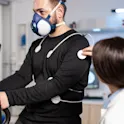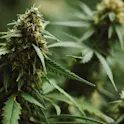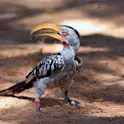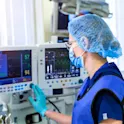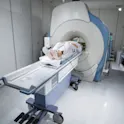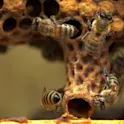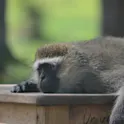
Neuroscience
01 Jun 2022
This illusion, new to science, is strong enough to trick our reflexes
By Mischa Dijkstra, Frontiers science writer An illusion new to science shows that the pupillary light reflex, which controls the width of the pupil in anticipation of expected changes in light, depends on the perceived environment rather than the physical reality. Have a look at the above image. Do you perceive that the central black hole is expanding, as if you’re moving into a dark environment, or falling into a hole? If so, you’re not alone: a new study shows that this ‘expanding hole’ illusion, which is new to science, is perceived by approximately 86% of people. Dr Bruno Laeng, a professor at the Department of Psychology of the University of Oslo and the study’s first author, said: “The ‘expanding hole’ is a highly dynamic illusion: The circular smear or shadow gradient of the central black hole evokes a marked impression of optic flow, as if the observer were heading forward into a hole or tunnel.” Optical illusions aren’t mere gimmicks without scientific interest: researchers in the field of psychosociology study them to better understand the complex processes our visual system uses to anticipate and make sense of the visual world – in a far more roundabout way than a […]
